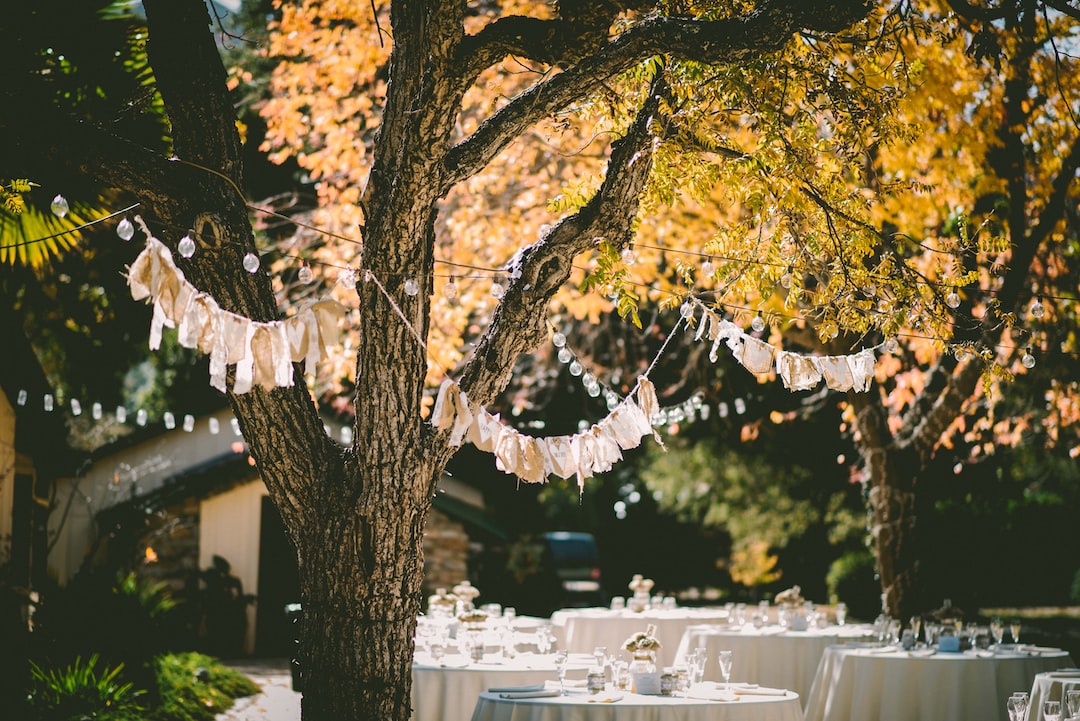Planning a wedding is no easy feat. From selecting the perfect venue to picking out flowers, countless decisions need to be made before your big day arrives.
Knowing what you can expect in terms of cost (and how much profit venues generate) can help you choose the best option for your special day.
In this blog post, we will cover average costs associated with booking a venue, types of venues available, benefits of reserving one, and tips on choosing the right location—all while answering our initial question: How much do wedding venues make a year?
How Much Do Wedding Venues Make a Year?
Average Cost of Wedding Venues
The average cost of wedding venues can vary greatly depending on the location, size, and amenities offered. Generally speaking, most couples will spend between $1,000 and $10,000 for their venue. However, some couples may end up spending more or less than this range depending on their specific needs.
Average Price Range: The average price range for a wedding venue is typically between $1,000 to $10,000. This includes both indoor and outdoor locations such as banquet halls or beachfront resorts. Of course, there are always exceptions; if you’re looking for something truly unique or luxurious then you could end up paying much more than that.
Factors That Affect Cost: Several factors can affect the cost of your wedding venue including its location (urban vs rural), capacity (number of guests it can accommodate), availability (how far in advance you book it), and amenities offered (catering services included). Additionally, certain times of year tend to be more expensive due to higher demand from other couples planning weddings around the same time as yours.
To save money when booking a wedding venue, consider looking at off-peak times such as winter months or weekdays instead of weekends, which tend to be more expensive due to higher demand from other couples planning weddings around the same time. Additionally, look into venues with fewer amenities so that you don’t have to pay extra for things like catering services that might not be necessary for your event anyway. Finally, try negotiating with potential venues by offering them referrals or discounts in exchange for lower rates; many places are willing to work with you if they know they will get something out of it too.
The average cost of wedding venues can vary greatly depending on location, size, and amenities. However, with careful research and planning it is possible to find a venue that fits your budget. Now let’s look at the different types of wedding venues available for couples to choose from.
Types of Wedding Venues
When it comes to wedding venues, there are many different types to choose from. Outdoor venues provide a beautiful backdrop for your special day and can be as simple or elaborate as you’d like. Whether you want an outdoor ceremony in a garden or on the beach or an outdoor reception under the stars, there are plenty of options available. Indoor venues offer more protection from the elements and often come with amenities such as air conditioning, sound systems, and lighting packages. Popular indoor wedding venue ideas include banquet halls, museums, historic buildings, churches/temples/synagogues, hotels/resorts/spas, restaurants/bars/pubs, and even private homes.
Unique venue ideas can add something extra special to your big day. Think art galleries for modern couples who appreciate culture, farms for rustic weddings, aquariums for those looking for something out of the ordinary, vineyards if you love wine, stadiums if you’re a sports fan, and zoos if animals make your heart sing – the possibilities are endless.
Outdoor Venues: Outdoor wedding venues give couples a chance to enjoy nature while exchanging their vows in front of family and friends. From gardens to beaches to parks – whatever kind of setting speaks most deeply to you – these locations offer natural beauty that will create lasting memories. Consider factors such as weather conditions when selecting an outdoor location so that everyone is comfortable during the event itself (e.g., providing shade tents).
Indoor wedding venues provide shelter from inclement weather while still allowing couples to celebrate their nuptials surrounded by loved ones in style. Banquet halls tend to be popular choices due to their large capacity which allows them to accommodate larger guest lists without feeling cramped inside, but other great indoor venue ideas include museums (which may also have outdoor spaces), historic buildings (such as castles), churches, temples, and synagogues (for religious ceremonies), hotels, resorts, and spas (for luxurious celebrations) restaurants, bars and pubs (for casual gatherings) and even private homes. Be sure that any indoor space has adequate ventilation so guests don’t feel stuffy during festivities for too long either way.
No matter what type of wedding venue you choose, it’s important to consider the benefits that come with booking one. From convenience and stress relief to access to amenities and services, booking a wedding venue can provide peace of mind and security for your special day. Let’s explore the benefits in more detail.
Benefits of Booking a Wedding Venue
Booking a wedding venue can be one of the most important decisions you make during your wedding planning process. There are many benefits to booking a venue that goes beyond simply having a place to host your special day.
Convenience and Stress Relief: Booking a wedding venue is convenient and takes away some of the stress associated with planning an event. When you book a venue, all of the details will already be taken care of for you such as seating arrangements, catering services, decorations, and more. This allows you to focus on other aspects of your big day without worrying about these details.
Access to Amenities and Services: Most venues offer amenities such as tables, chairs, linens, audio-visual equipment, lighting systems, and more that may not be available if you were hosting at home or in another location. Additionally, they often provide staff members who are knowledgeable about setting up events so that everything runs smoothly on the day of.
When booking a wedding venue there is peace of mind knowing that it has been inspected by local authorities for safety regulations, giving assurance that guests will have an enjoyable experience without any worries or concerns regarding their safety while attending your event. Furthermore, many venues also provide security personnel who can help ensure everyone’s safety throughout the night should any issues arise during the celebration.
Booking a wedding venue can provide convenience, access to amenities and services, and peace of mind. However, understanding how much venues make in a year is also important for ensuring the success of your event.
How Much Do Wedding Venues Make a Year?
The average revenue generated by wedding venues varies greatly depending on the size and location of the venue. On average, a small wedding venue can make anywhere from $10,000 to $50,000 per year while larger venues may generate up to several hundred thousand dollars annually. Factors that impact profitability include overhead costs such as rent or mortgage payments, utilities, staffing expenses, and marketing costs. Additionally, seasonality plays an important role in determining how much money a wedding venue makes each year; for example, summer months tend to be more popular for weddings than winter months due to better weather conditions.
To increase profits at a wedding venue, several strategies can be employed. One of the most effective ways is through strategic pricing – offering discounts during off-peak times or special packages during peak seasons – which helps attract more customers and maximize revenues. Additionally, increasing visibility through online advertising campaigns or word-of-mouth referrals can help draw attention to your business and boost sales. Finally, investing in quality customer service will ensure that clients have an enjoyable experience at your venue and come back again in the future
Tips for Choosing the Right Wedding Venue
It’s essential to take your time and research all of your options carefully before making a final decision. Here are some tips for choosing the perfect wedding venue:
Research Your Options Carefully: Take some time to explore different venues in person or online, and read reviews from past customers. Make sure that the location fits with your vision for the event, and that it has enough space for all of your guests. Consider factors such as parking availability, accessibility, and noise levels if applicable. Also, be sure to ask about any additional fees or restrictions that may apply at each potential venue before booking anything.
Consider Your Budget and Needs: When selecting a wedding venue, it’s important to consider both budget and needs. Think about how much money you have available to spend on a location, as well as what type of atmosphere you want for your special day. Do you prefer an outdoor ceremony? Are there certain necessary amenities? Knowing exactly what you need can help narrow down potential locations quickly so that you don’t waste time looking at unsuitable places.
Once you have narrowed down possible venues based on budget and needs, it is important to visit them in person if possible before making any commitments or signing contracts. Seeing each place firsthand can give you an idea of its size, layout, lighting conditions, etc., which can help ensure that everything runs smoothly on the day itself without any unexpected issues. Additionally visiting in person allows couples to get a feel for whether they would like their special day held at this particular location or not – something which is hard to gauge over just photos alone.
FAQs About How Much Do Wedding Venues Make a Year
Is having a wedding venue profitable?
It is possible to make a profit from running a wedding venue, depending on the size and scope of the business. Many venues can generate revenue through rental fees for use of their space, as well as additional services such as catering or event planning. However, it can be difficult to turn a significant profit above the overhead costs associated with running such an operation. Additionally, there may be competition in the area that could limit potential profits. Ultimately, it is possible to make a profit from running a wedding venue, but the success of such an endeavor will depend on many factors.
Is owning an event space profitable?
Owning an event space can be a profitable venture depending on the size, location, and services offered. The cost of purchasing or renting the space will need to be taken into account when considering profitability. Additionally, factors such as catering costs, staff wages, and marketing expenses must also be factored in when determining whether owning an event space is profitable. Ultimately, if all costs are managed properly and the right services are provided to customers at competitive prices then owning an event space can be a successful business endeavor.
Why are wedding venues so expensive?
Wedding venues are expensive due to the cost of maintaining them, as well as the costs associated with hosting a wedding. Venues must cover their overhead costs such as rent, utilities, staff wages, and insurance. They also need to factor in additional expenses like food preparation and service fees, linens, and decorations. Furthermore, many venues have minimum spending requirements for booking which can add up quickly when you factor in catering services or other amenities. All these factors contribute to why wedding venues tend to be more costly than other event spaces.
Is owning a banquet hall profitable?
Owning a banquet hall can be profitable, depending on the location and size of the facility. Factors such as market demand, competition in the area, pricing structure, and quality of service all play an important role in determining profitability. It is also important to consider costs associated with running a banquet hall including labor expenses, overhead costs for utilities and maintenance, marketing efforts to attract customers, and other operating expenses. With careful planning and management of these factors, it is possible to make owning a banquet hall profitable.




